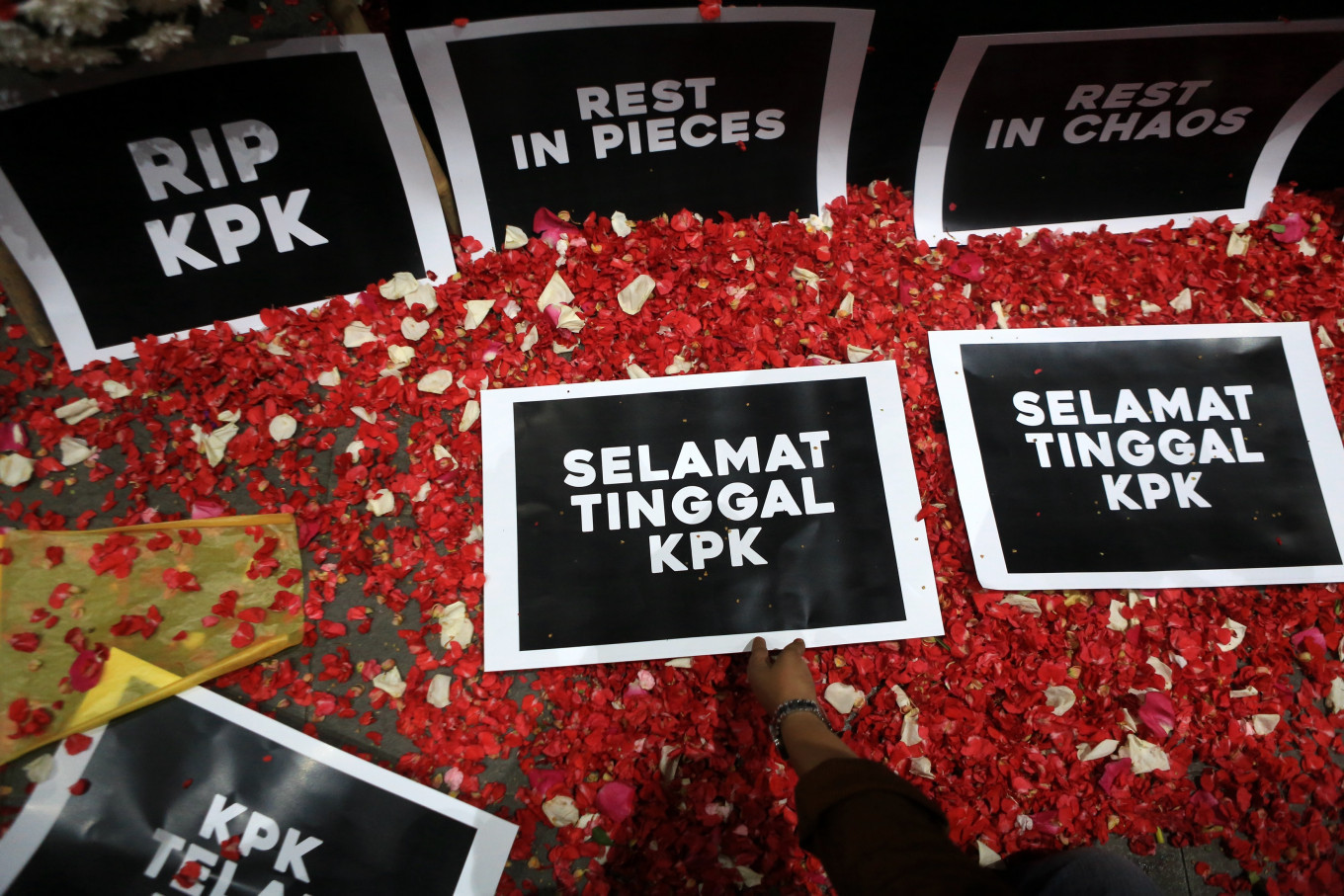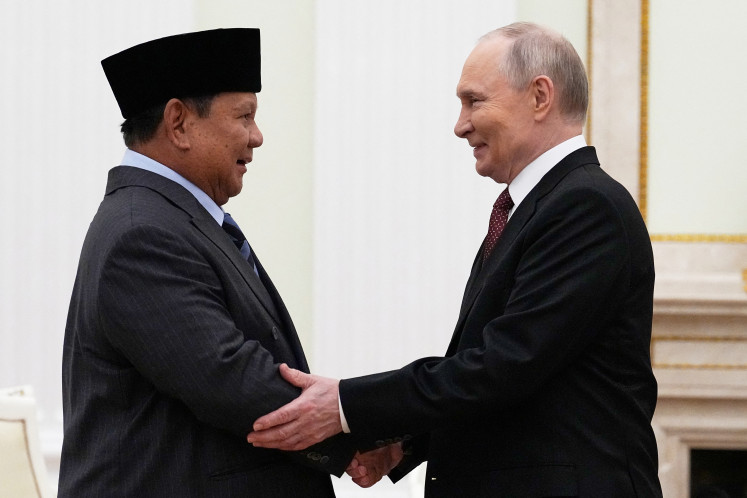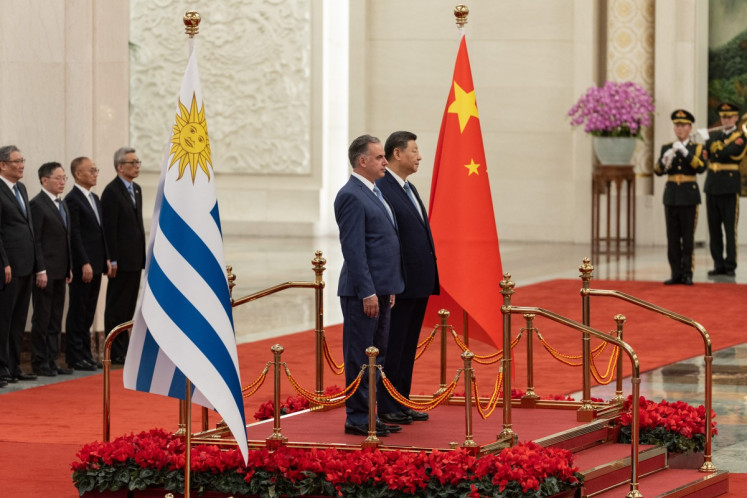Popular Reads
Top Results
Can't find what you're looking for?
View all search resultsPopular Reads
Top Results
Can't find what you're looking for?
View all search resultsWho killed the KPK?
The President’s turning a deaf ear to the rallying cry for strong and independent graft busters is dangerous. As the holder of executive power, his recent decisions related to the KPK will change the way the nation perceives corruption.
Change text size
Gift Premium Articles
to Anyone
P
resident Joko “Jokowi” Widodo appeared to provide a ray of hope when he promised to weigh the possibility of signing a regulation in lieu of law (Perppu) that would repeal the recently revised Corruption Eradication Commission (KPK) Law amid a flurry of student protests against the amendments last month. Now we have heard from Jokowi himself: This was a false hope.
Surely Jokowi broke the hearts of many after he announced over the weekend his decision not to sign the much-awaited Perppu, saying he would not like to interfere with the ongoing judicial reviews filed with the Constitutional Court against the new KPK Law. Or perhaps we expected too much from the President, based on his campaign platform in 2014, which included corruption-free, dignified and credible law enforcement.
The disappointment shows not only that Jokowi is not in favor of a strong and independent KPK, contrary to his previous claims. He also wants to reduce the KPK to an ordinary law enforcement agency, hence pursuing corruption eradication efforts that follow a “business as usual” formula.
Jokowi has further shown an unwillingness to exercise his power to protect the KPK as he will speed up the formation of the KPK supervisory council so that it will be in place when the new KPK commissioners begin their term next month. The new KPK Law requires KPK commissioners to seek the supervisory council’s consent to conduct wiretapping, confiscation and searches, which in effect clips the KPK’s wings.
The national consensus that followed the reform movement in 1998 declared corruption, collusion and nepotism to be extraordinary crimes that therefore required unusual measures to eradicate them. The reform spirit then resulted in the 2002 KPK Law, which drastically changed the game in the fight against graft.
The same political elite that gave birth to the KPK have now colluded to tame the antigraft body. Although he refused to sign the amended KPK Law, his decision to opt for pragmatism rather than a commitment to anticorruption is more than enough to rank Jokowi among the alliance of those who intend to weaken the KPK. Jokowi’s approval of KPK commissioner candidates with questionable track records confirms his indifference of the basic fact of anticorruption, namely that a dirty broom will not sweep clean.
The President’s turning a deaf ear to the rallying cry for strong and independent graft busters is dangerous. As the holder of executive power, his recent decisions related to the KPK will change the way the nation perceives corruption.
It is safe to say that the President is partly to blame for a series of Supreme Court verdicts that reduced the sentence of graft convicts recently. Had the President defended the KPK from political bullying, perhaps the Corruption Court might not have acquitted former state electricity company boss Sofyan Basyir on Monday in a high-profile bribery case the KPK had investigated.
Of course the old KPK had its imperfections, but it kept the nation’s hopes of forming a corruption-resisting society alive. If only we could resurrect the dead KPK.










